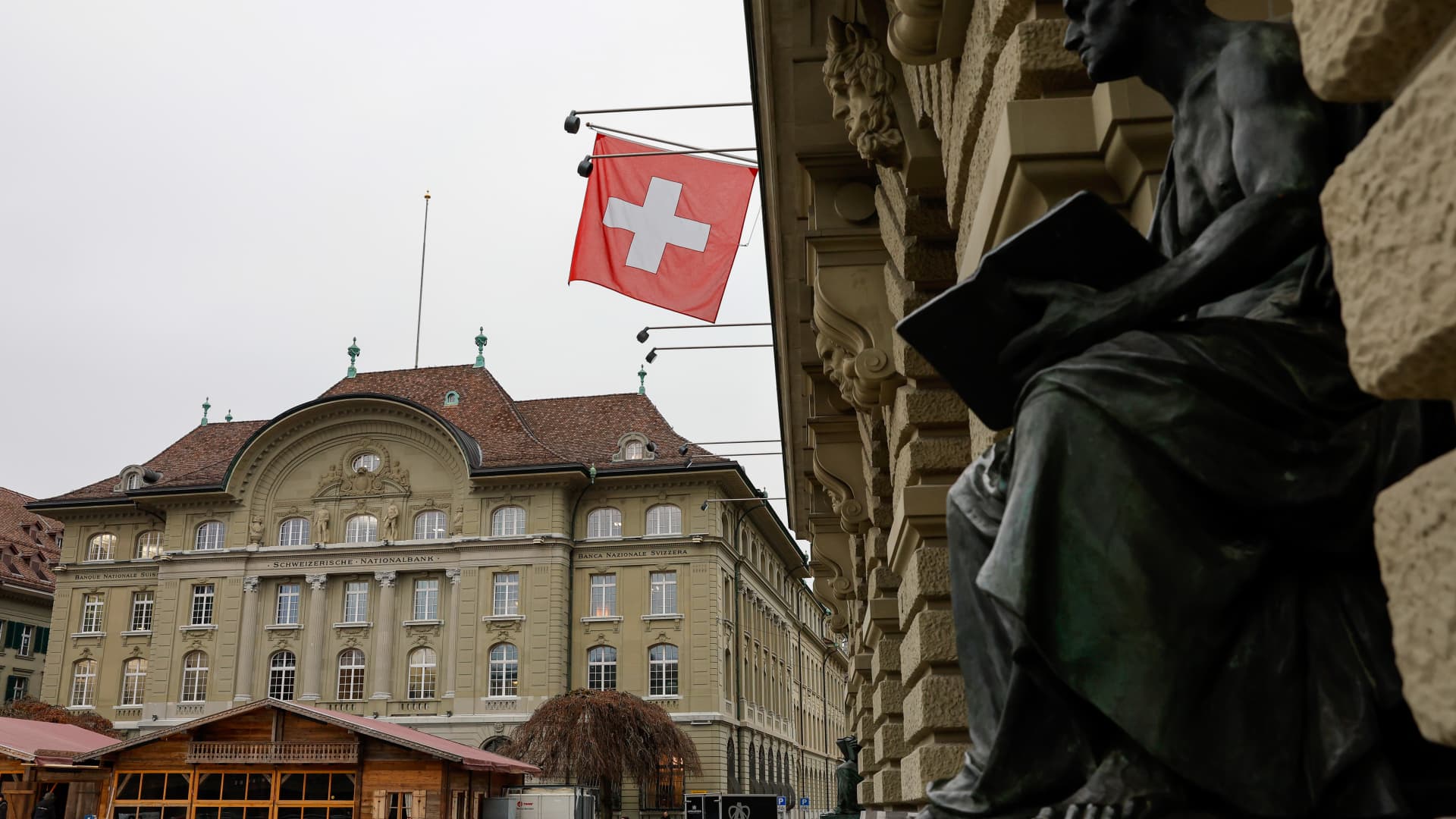The Swiss National Bank (SNB) in Bern, Switzerland, on Thursday, Dec. 12, 2024.
Stefan Wermuth | Bloomberg | Getty Images
The Swiss National Bank on Thursday cut interest rates by a further 25 basis points to 0% — adding to concerns over a potential return to negative rates.
The reduction was widely expected by markets ahead of the decision, after traders priced in an around 81% chance of a quarter-point cut and around a 19% chance of a bigger 50-basis-point cut.
“Inflationary pressure has decreased compared to the previous quarter. With today’s easing of monetary policy, the SNB is countering the lower inflationary pressure,” the central bank said in a statement.
“The SNB will continue to monitor the situation closely and adjust its monetary policy if necessary, to ensure that inflation remains within the range consistent with price stability over the medium term,” it added.
While other nations continue to battle inflation, Switzerland faces deflation, with consumer prices falling by an annual 0.1% in May.
Low levels of inflation are not unusual for Switzerland — the country has seen several periods of deflation in the 2010s and 2020s. The strength of the country’s currency, the Swiss franc, is a major contributor to this trend.
“As a safe-haven currency, the Swiss franc tends to appreciate when there is stress on world markets,” said Charlotte de Montpellier, a senior economist covering France and Switzerland at ING.
“This systematically pushes down the price of imported products. Switzerland is a small, open economy, and imports account for a large proportion of CPI [consumer price index] inflation,” Montpellier told CNBC ahead of the central bank’s announcement.
Amid high levels of global economic uncertainty, the franc has continuously strengthened in recent months and is widely expected to continue on this path, suggesting ongoing challenges for the SNB.
As the strength of the franc has been the primary driver of Switzerland’s low inflation, the SNB is now taking steps to constrain the currency’s rally by keeping rates “systematically lower than elsewhere,” Montpellier said.
After the interest rate decision, the franc strengthened, with the U.S. dollar last trading flat against the Swiss currency.
Negative rates?
Adrian Prettejohn, Europe economist at Capital Economics, told CNBC ahead of Thursday’s interest rate decision that he expects rates to be cut to -0.25% this year, but noted that the SNB could go even lower.
“There are risks that the SNB will go further in the future if inflationary pressures don’t start to increase, and the lowest the policy rate could go is -0.75%, the rate it reached in the 2010s,” he told CNBC.
Prettejohn said interest cuts weigh on currencies, making borrowing cheaper and encouraging investment.
However, there are also some concerns and risks attached to negative rates, including for savers, who could see any profit on their savings wiped out, and for banks, which will rake in lower returns on their loans.
ING’s de Montpellier noted that eventually, negative rates might “distort financial markets, compress bank margins, and raise concerns about long-term financial stability.”

